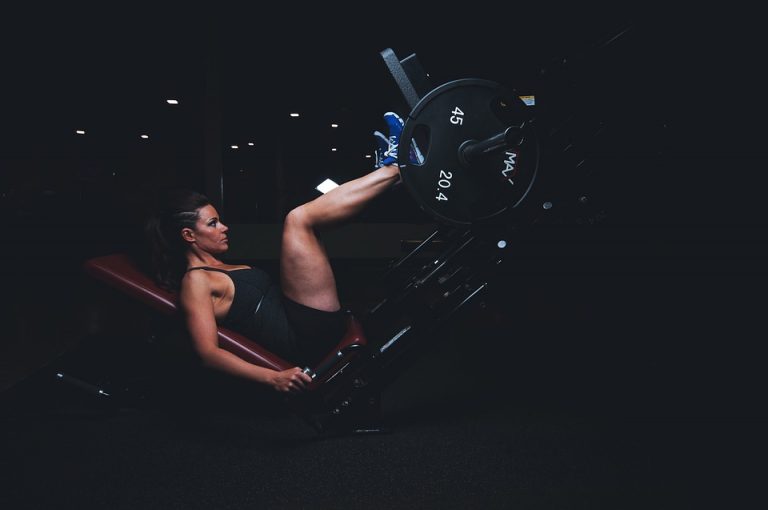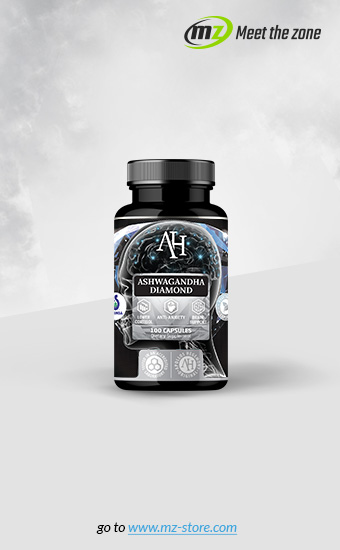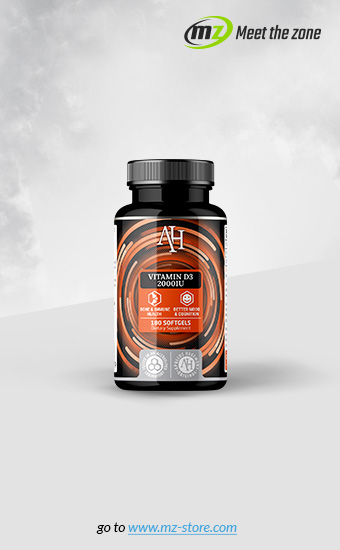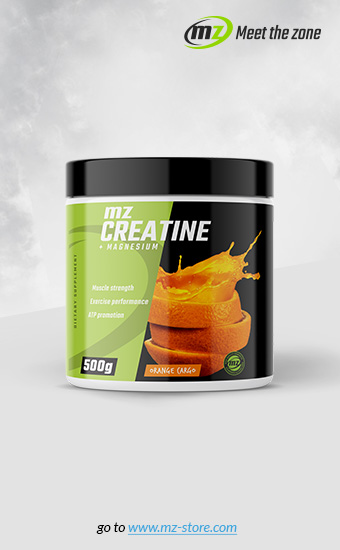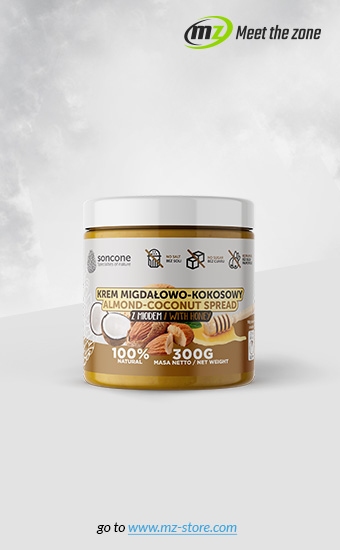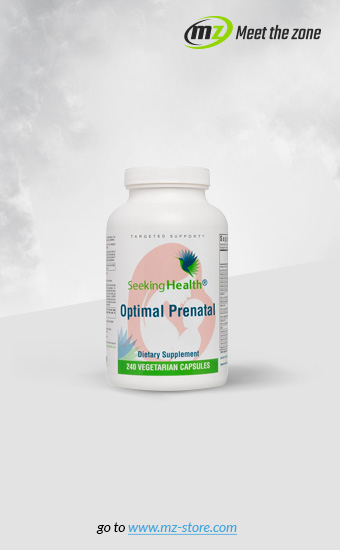Strength, interval and aerobic exercise has different effects on athletes. In addition to that, the results of exercise mostly depends on the intensity of work, length of the session (volume), frequency of workout, an individual person's condition, their age, hormonal profile etc. However, you can also define the general guidelines of factors that have a direct impact on mood, regeneration and health.
- Method no. 1: “limit alcohol consumption”
- Method no. 2: “Ensure proper rest”
- Method no. 3: “limit the pharmacology supply”
- Method no. 4: “Take care of your diet”
- Method no. 5: “limit cardio volume”
- Method no. 6: “limit intervals”
- Method no. 7: “use massages, sauna, baths in cold water”
- Method no. 8: “Take care of proper hydration”
Method no. 1: “limit alcohol consumption”
Alcohol, from a physiological point of view, is a poison. Technically you can consume small amounts of ethanol without any impact on your health ( ~ 15g of ethanol per day for women, ~ 30g for men), however, alcohol can still affect the post-workout regeneration, as well as strength and power of a competitor.
A single consumption of alcohol doesn’t have much impact on post-workout regeneration, especially if there isn’t much ethanol in the consumed beverage. However, regular consumption has a significant impact on inflammatory mediators (e.g. proinflammatory cytokines). In animals, a single consumption of alcohol reduced the level of TNF-α and IL-1. However, it’s not entirely sure if the changing levels of cytokines is caused by the workout, or by the alcohol consumed. Alcohol can also impact the rate of glycogen resynthesis, however according to studies, it’s not significant. Glycogen is the basic component of the stored energy in the body. Athletes have vast resources of stored glucose, estimated at least 1600 kcal per person weighing 70kg. Burke and others checked how drinking alcohol impacts restoration of glycogen stores after intense cycling.
They used three types of “diet”:
- Control group: carbohydrate diet, optimal for restoring glycogen,
- Alcohol and reduced amount of carbohydrates (instead of 210g of carbohydrates, they were given 120g of alcohol),
- Alcohol + carbohydrates (120g of alcohol + a lot of carbohydrates).
- Results 8 hours after training (amount of glycogen mmol / kg):
- Control (carbohydrates): 44,6 ± 6
- Alcohol (120g) and less carbohydrates: 24,4 ± 7
- Alcohol (120g) + carbohydrates: 36,2 ± 8
- Results 24 hours after training (amount of glycogen mmol / kg):
- Control (carbohydrates): 81,7 ± 5
- Alcohol (120g) and less carbohydrates: 68,4 ± 5
- Alcohol (120g) + carbohydrates: 85,1 ± 9
Conclusions from the study:
- As you can see, with limited amount of carbohydrates in the diet - and adding alcohol - after 8 hours the amount of glycogen in muscles was half compared to the high carbohydrate group,
- However, the effects alcohol has with correspondingly large supplies of carbohydrates are not clear. After 8 hours, the difference in restoring muscle glycogen resources between the groups (high carbohydrate, and high carbohydrate and alcohol) was small, and after 24 hours there was none - control group 81,7 ± 5, and group with alcohol and carbohydrates 85,1 ± 9;
- Scientists stress that individual differences between different people are so important that: one athlete suffers big damage in replenishing resources of carbohydrates in the muscles if they drink alcohol (even with an appropriate intake of carbohydrates), while another one won’t feel any difference with the slower post-workout regeneration;
- People who drink a lot of alcohol can have issues providing an appropriate amount of carbohydrates, another source of energy - ethanol - is not so effective.
Most likely alcohol also decreases synthesis of muscle protein, which is strictly dependant on the dose of ethanol and the time in which we serve alcohol after training. Alcohol blocks mTOR pathway, disturbing the main metabolic signalling system talking about e.g. muscle growth, regulating transcription. If that wasn’t enough, alcohol also affects E3 ubiquitin ligases: atrogin1 and MuRF1 (Muscle-specific RING finger 1). These ligases can be activated by e.g. myostatin - perfectly described factor regulating muscle growth. They cause muscle breakdown. Alcohol also deepens the loss of power after training - especially eccentric, which of course depends on the dose of ethanol in the beverage.
In conclusion: if you can, throw away alcohol from your life for 2 months - see if anything changes for better.
Method no. 2: “Ensure proper rest”

I will not tell you how much you have to sleep, it’s an individual matter, dependant on multiple factors. Some people may only need 6 hours, while others can’t get enough even with 8 hours of sleep. You’re training lightly - you need less sleep, you’re training heavily - you need more rest. You’re using SAA - you probably need less sleep, you will regenerate faster. On another hand, hormonal fluctuations caused by anabolic-androgenic steroids can disturb sleep. For example obstructive sleep apnea (OSA), is correlated to low testosterone levels. Obstructive sleep apnea is a disease, which is characterised by recurring episodes of stopping (apnea) or limiting the flow (hypopnea) through air passages at the throat level with increased work of the respiratory muscles.
Apart from that, the quality of sleep can be affected by e.g. taken medicine or alcohol (changes the length of different sleep phases, sleep is shallower, REM phase is shorter, stage I of sleep is longer). The quality of sleep can be affected by e.g. shift work - daily fluctuations in the level of cortisol or melatonin look different .
Method no. 3: “limit the pharmacology supply”
Sleep can be affected by e.g.:
- beta-agonists (eg. salbutamol, clenbuterol, Bamethan, reproterol, salmeterol, terbutaline, fenoterol, procaterol, Cimaterol, isoprenaline),
- non selective stimulants receptors α and β - blockers (eg. ephedrine),
- Intermediate beta-mimetic agents such as phentermine,
- opioid antagonists used, among other things, in addiction therapy or for weight loss, such as naltrexone,
- a non-selective antagonists, alpha-adrenergic receptor (eg. yohimbine)
- Caffeine
- clomiphene citrate and tamoxifen (rarely)
- tesamorelin (releasing factor analogue of human growth hormone)
- trenbolone,
- EPO (third generation)
- DMAA,
- DMBA
- drugs: amphetamine / methamphetamine, MDA, MDMA, opiates.
Method no. 4: “Take care of your diet”
Maybe you’re not supplying enough protein, carbohydrates and fats. Maybe you’re eating too many simple sugars, which results in fluctuations in blood glucose? Maybe you’re eating your meal too late, which disturbs your sleep?
Method no. 5: “limit cardio volume”
They are harmful for athletes basing themselves on muscle strength and power. Running has especially negative effects, cycling has a bit smaller effects. In an experiment conducted in 2014, athletes trained 3 days in a row, with intensity order of 70% VO2 max, 2,5h daily. They studied how the training affects creatine kinase, which is inflammation (CRP, IL-6, IL-8, IL-10, MCP) and immunity. They concluded, that runners suffered a lot more muscle damage than cyclists (creatine kinase increased by 133% and 404% of myoglobin - after 3 days of activity). Myoglobin is released into the serum, among other things, after damaging skeletal muscles. Creatine kinase may be a measure of the damage to the muscles during exercise (microtrauma). So, inflammatory factors were much higher in runners than cyclists (CRP higher by 87%, IL-6 by 256%, IL-8 by 61%, IL-10 by 32%, MCP by 29%). If that wasn’t enough, running exercise resulted in 87% more microtrauma comparing to cycling.
In summary: too many aerobic workouts negatively affects your regeneration. Long-distance running has specially upsetting effects (e.g. severe muscle soreness caused by the damage). A small number of aerobics positively affects regeneration, especially if you’re doing a low-intensity exercise just after the interval training.
Method no. 6: “limit intervals”
Yes, i know that intervals are great, it’s number one - but… always remember about the fact, that hard work that brings effects needs proportionally long rest time. If you exercise often and intensely (e.g. more than 5 times a week; including strength and interval exercise, together) - you will get the opposite effects than what you intended. Pro-inflammatory cytokines amount will increase, creatine kinase will rise, the amount of haematocrit and haemoglobin will decrease, so will testosterone levels. Additionally, you will notice less response from the adrenergic system, adrenaline and noradrenaline rush will be reduced.
In conclusion: a small amount of intervals is an ideal solution, too many and intense sessions will kill athletes regeneration.
Method no. 7: “use massages, sauna, baths in cold water”
All this can affect speeding up regeneration after workout. Of course, you shouldn’t go to a sauna before or after a strength exercise - it’s a bad idea, because of the strain it would have on the heart and the circulatory system, as well as dehydration.
Method no. 8: “Take care of proper hydration”
And here I don’t mean alcoholic or isotonic beverages. Just water - simple, preferably mineral. Without additives, flavours, sweeteners, colours etc.
